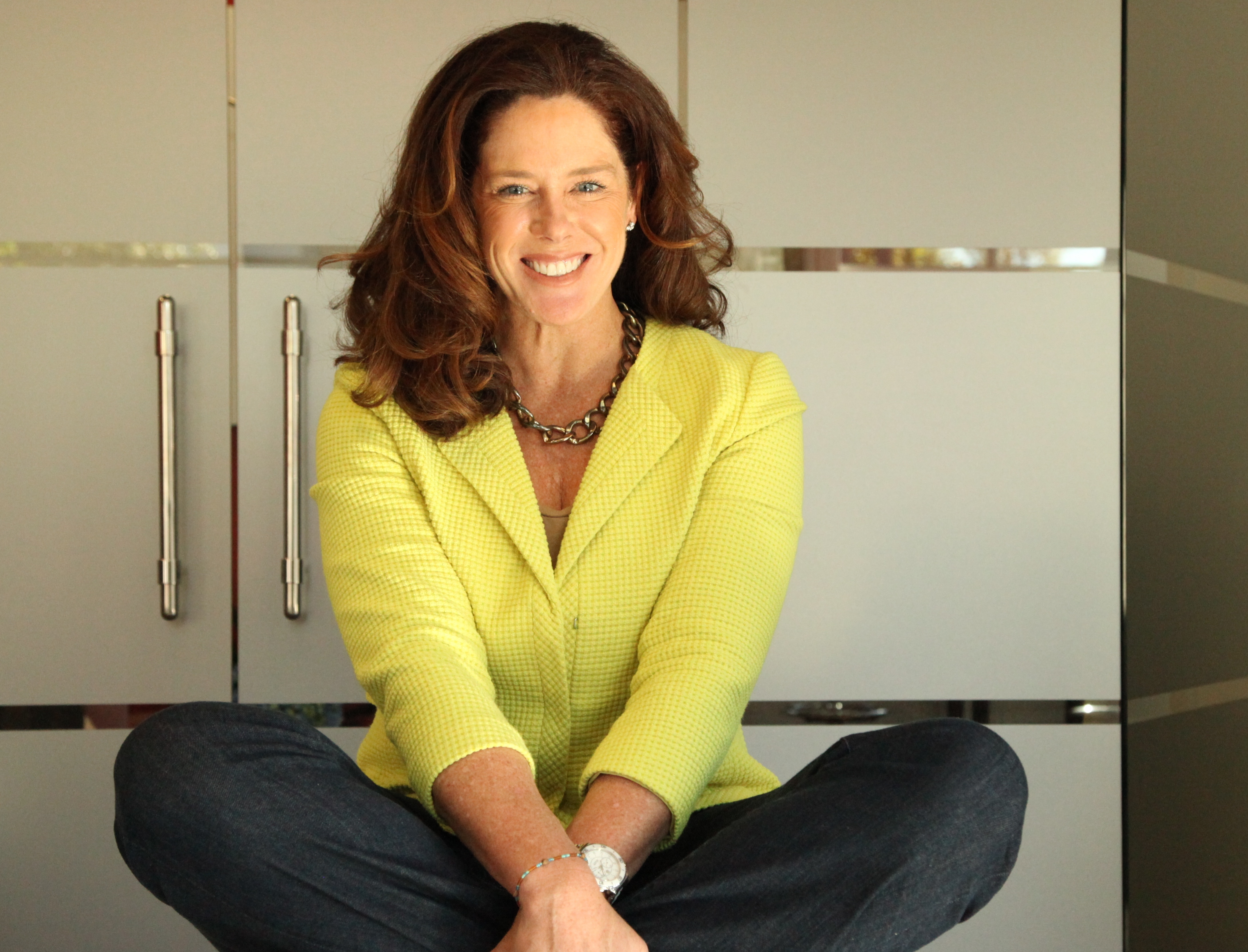Before Cokie Cox climbed Mount Everest, a seasoned climber warned coming down would be harder than the ascent. Why? Because very few people would relate to her experience.
That’s not too different from the journey of entrepreneurs who find fewer peers the farther they go, says Cokie, founder of investment management firm, Alphavest. She’s also developed a coaching practice based on her own experience of trying to get her life in order as an entrepreneur. Cokie talks about the many ways that “lonely at the top” feeling can crop up for founders, and how to resolve it one day at a time.


As a founder, does the phrase “lonely at the top” ring true for you?
Yes, and I think that at the root of every single one of us, no matter our station in life, we're all wired to connect. So, when you summit Everest and come home with this crazy, badass story to tell people—and no one has the bandwidth or the attention span to give a shit —it feels lonely.
All I wanted to do was use that adventure and that experience to connect with other people. But what it ended up doing was isolating me on an island with a handful of women who had done it. My first step back into a big box store in the U.S. after the Himalayas it was, “Oh my gosh, Cokie! How was your trip? Oh, look, tomatoes are on sale.” And that happened more times than I can count on two hands.
So that's one aspect of the loneliness.
The other is when you have the busy entrepreneur or C-suite exec making six and seven figures who feels like they're on that treadmill. They feel like, “I earn a very respectable salary. I'm doing so well. Everybody sees me as successful. Why does this feel like I'm all alone?”
I think part of the solution is that having that sense of purpose is what keeps us super connected to others, and to what you're doing and the why.
Sometimes you need a reset or pattern interrupt to rebuild that values platform. What's most important? Let's start there. That's what we'll we will prioritize.
I’m imagining you suggesting a “pattern interrupt” to a busy founder and them saying, “No freaking way. I don't have the time. Too risky.”
That’s the essence of what I call Lifestyle Deficit Disorder. I don't have enough time. I refuse and I have the inability or the lack of desire to delegate. I don't have enough money. But it usually comes down to letting go of the almighty dollar.
The idea that you don't have enough time is always wrong; you're just choosing not to prioritize that. It’s the inability to delegate, being that rugged individualist who just decides to do it all because you can do it quicker yourself. When you say there’s a lack of money, you’re saying you can't hire the people within your organization or the people to support you around your life.
It’s a choice. You can quit getting your gel manicures, and you can drop a trip or two, or fill in the blank. There are ways to find the money if it's a priority.
What usually gets people to change those priorities? Is it burnout? Is it a crisis?
Yes, unfortunately. I call it an ER moment. In the not-too-distant past, we saw a lot of those ER moments forced upon us with people having to quarantine for two weeks or close their business for two months. Did your business crumble? Are your family and relationships still intact? That's where you do that assessment.
At the other end of that are too many examples in my career of the successful entrepreneur who's working too hard and ends up in the ER with a heart attack, and never gets to go on that family trip or buy that house. And nobody in my field wants to talk to their clients about planning for 50% of their assets to go away in the event of divorce.
What is the way out?
I believe people have extraordinary power and will and grit. And if you do, then you do have the power to make really big grand sweeping transitions with little, tiny shifts and behaviors.
It doesn't have to be a huge reset. You don't have to move your family across the country and live in another city with one paved road and a school of 60 kids.

You just need to “4-1-1,” or check in with four parts of your life briefly every morning: health and wellness, spirituality and experiences, finances, and contribution.
My mentor brought me the idea of the quadrants and this analogy: Think about yourself driving 80-miles-an-hour down the highway with two or three of your tires under-inflated and one tire that's over-inflated.
For entrepreneurs, which tire is over-inflated?
Business, the financial tire.
That's right. Now imagine someone swerves into your lane. You also swerve, and you go off the interstate into a ditch. What's the chance of an ER moment? What's the chance of death or disability in that scenario?
Pretty huge.
Conversely, you have all four tires on your car, pretty equally inflated, same scenario. You do the little jig with the car. Your chance of survival is better, right?
Yeah. You’re balanced, and so you have more control and can get back on track more quickly.
Correct, and that holds true in all scenarios.
Checking in daily doesn't take four hours. It doesn't take one hour. In your contribution bucket, it could simply be a ten-second text or five-minute call to offer someone social support, kudos, or gratitude. Little steps towards the goals you're seeking.
What areas are most challenging for you, personally?
When I get off track, it's typically a function of my personal time system. It can get a little shaken if I’m traveling or things are going on with the family. But if I stray from the time system that works for me, it’s not good.
I don’t believe in “balance.” See, 411-ing is just a function of slamming everything into your morning, getting yourself taken care of first, and then letting the rest fill the day. By definition, that’s imbalanced, right? But it's integrating everything.
From 30,000 feet up, my time system looks balanced. But it’s really not, because certain days and times of day are devoted to certain activities.
When I break from the time system that suits what my business needs from me, what I need from me, and what my family needs from me is when I can tell I'm slipping into Lifestyle Deficit Disorder.
How can founders tell the difference between slipping into a detrimental situation they need to fix versus, hey, it’s just stressful when you're the boss?
I would say you have to take a temperature reading on your health and your relationships. Get an inventory of the perspectives of people you trust. Would your doctor say you’re thriving or not thriving?
Is your cholesterol or blood pressure too high? Are you exercising? Are you sleeping enough?
Would your financial advisor say you're thriving or not thriving financially? You want to make sure that you've got good financial stop gaps in there as well.
It sounds like just getting out of your own head and reconnecting with the people around you, whether on a personal level or for their expertise.
There's no question. If you're not relying on others and their advice, something's broken within your system. And you could be headed to an ER moment.
At the end of the day, I think being lonely on top always comes back to being vulnerable and wanting to connect. It’s not necessarily trying to impart your experience on the world, but truly seeking to connect with others where they come from.
People obviously didn't wanna hear about what the top of Mount Everest looked like. But they wanna hear other things. So, meeting them there and just being vulnerable, I think is the way to get around feeling lonely at the top. Also, a desire to grow: being vulnerable always results in growth.
___
Photos courtesy of Cokie Cox